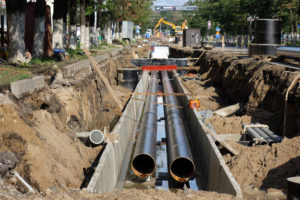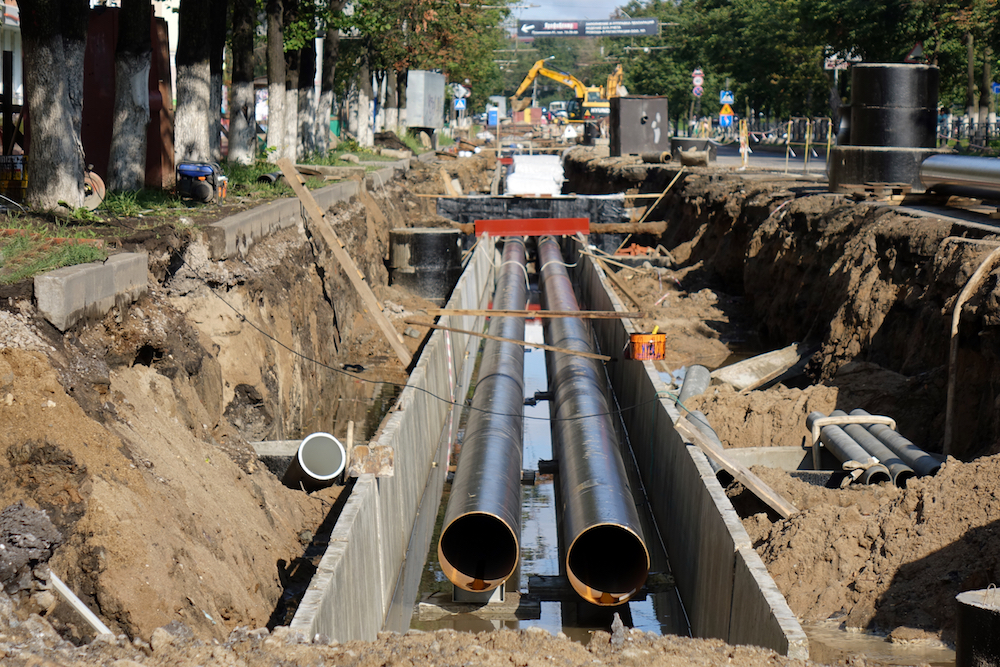
On public works projects, payment bonds protect subcontractors, suppliers, and other construction businesses from going unpaid. Recently, Missouri updated its payment bond requirements to provide broader protection. The changes will go into effect on August 28, 2019.
Updates to Missouri payment bond requirements
SB 167, which replaces current Section 107.170 of the Missouri Revised Statutes, made significant changes that will impact the entire payment chain on Missouri public works projects. You can read the full text of the statute here, and a summary here. Again – these changes go into effect August 28, 2019.
In our eyes, there are four major changes made by SB 167, and one “change” that’s inconsequential. Let’s break down the changes subject by subject…
1. Payment bond threshold for Missouri public works has doubled
Perhaps the biggest difference here is the new payment bond threshold. Previously, payment bonds were required on public works projects exceeding $25,000. Following SB 167, that threshold doubles to $50,000.
So, for all public works projects exceeding $50,000, the project’s contractor must secure a payment bond in order to protect other project participants from nonpayment. However, the definitions of “public works” and “contractor” were both adjusted, too.
2. SB 167 redefines “public works”
Previously, public works were defined as “the erection, construction, alteration, repair or improvement of any building, road, street, public utility or other public facility owned by the public entity.”
Following SB 167, five words were added to the end of that definition: “including work for nongovernmental purposes.”
Those 5 words will end up making a world of difference.
Payment bonds and P3 projects
The lines between public and private projects are commonly blurred. Public-private partnership (P3) projects, in some form or fashion, have been on the rise for years. Essentially, a P3 construction project is any project that combines some public and private interest in a non-traditional way. Any project that doesn’t follow the classic design-bid-build or design-build format might creep toward being considered a P3 project if public and private resources get too intertwined.
The issue being: If a project isn’t considered “public”, then payment bonds will likely not be required. However, with the project being at least partially publicly owned or built, mechanics lien rights might not be available, either. So, in some situations, construction businesses who go unpaid for their work might end up in no-man’s land regarding payment security. And, as a result, their only route for recovery might be to pursue a lawsuit. More on that here: Public-Private Partnerships – What’s The Protection?
By adding “including work for nongovernmental purposes” to the Missouri Little Miller Act, the term “public works” will now (presumably) extend far beyond the traditional public construction project. That means, hopefully, that those subs, suppliers, equipment lessors, etc. on Missouri P3 projects will have more recovery options available to them.
3. SB 167 also redefines “contractor”
The updated definition for “contractor” isn’t nearly as simple as the changes to “public works.” The definition for “contractor” is now broken up into two sections, and the section describing what terms don’t fall under a “contractor” was fortified, too.
The first section defining the term contractor is pretty standard. It defines a contractor as a person or business entity who: “Provides or arranges for construction services on a public works project under contract to a public entity for a governmental purpose.”
That definition was changed from the previous one, but only slightly. Generally, that’s the term industry members think of when they think of a contractor on a public project. It’s the next section that gets tricky.
A contractor now also includes a person or business entity who “Contracts, provides, or arranges for construction services on a public works project for a nongovernmental purpose when acting as a lessee, agent, designee, or representative of a public entity.”
Implications of redefining “contractor” under SB 167
That’s a radical shift. Based on the above, a private company who leases land from the government may be considered a “contractor” if they improve public land. And, if their project exceeds $50,000, they will likely need to secure a payment bond. Previously, protection on these projects was hard to come by – much like P3 projects.
This also seems to point toward protection on non-traditional projects, like P3 projects and/or projects that don’t follow the classic public project delivery methods. Under the new definition above, a middle man between a public entity and a construction project might end up being considered a “contractor” and could end up needing to post a bond if they’ve got control over the project. Whereas, previously, a P3 concessionaire might have been exempt from posting a bond since they aren’t a “contractor”, now, it seems like they’d need to post a payment bond.
Construction managers not-at-risk aren’t considered contractors
Construction managers who are not-at-risk (meaning, they’re not liable for the construction – they’re merely serving as an agent of the owner) aren’t considered “contractors” for the purposes of the Missouri payment bond requirements. Neither are construction managers who don’t actually enter into any contracts with those who will be providing work.
4. Protection and notice requirements for “remote suppliers” have changed
There are two big things to note here: (1) bond claim rights for remote suppliers are expanded; and (2) remote suppliers will now have a notice requirement in order to be able to preserve their right to make a bond claim.
Before diving in, the statute defines a “remote supplier” as any material supplier who is hired by a second-tier subcontractor (or lower), or hired by another supplier.
Remote suppliers gain additional protection
Previously, the protection for suppliers was a little more vague. Now, the extent of bond claim rights in Missouri is much more clearly defined.
More importantly – suppliers to suppliers were previously not entitled to bond claim rights in Missouri. Now, suppliers to suppliers clearly retain the right to make a bond claim as long as they’ve sent the proper notice.
Remote suppliers must send notice to preserve bond claim rights
Previously, there weren’t really any notice requirements in order to preserve the right to make a bond claim on a Missouri public works project. But, with SB 167, remote suppliers now face notice requirements.
It’s a simple requirement, though. Remote suppliers must send notice to the project’s contractor within 90 days of last furnishing labor or materials in order to preserve their right to make a payment bond claim. Effectively, this notice acts a lot like a Notice of Intent to Make a Bond Claim. Considering Missouri is one of a few states that requires a Notice of Intent to Lien on private construction projects, this shouldn’t come as much of a shock.
5. Mechanics liens improperly filed against public works will be discharged
This isn’t really a change to the Missouri payment bond requirements, and it’s kind of assumed anyway. Regardless, SB 167 makes it clear that a payment bonds provide protection for public works projects, and that mechanics lien filed against a public works project will be discharged. This shouldn’t be news to anyone.
Of course, keep in mind the discussion above regarding private leases on public property and P3 projects. In both situations, it can get murky when determining what rights are available. However, SB 167 does a great job at clarifying things.
The new Missouri payment bond requirements seem fair
These updates to the Missouri payment bond requirements seem like pretty sound legislation. Missouri helped clear up a lot of confusion on projects that straddle the line between public and private jobs, and the state also expanded bond claim rights to include remote suppliers.
At the same time, requirements were added so that a supplier must first notify their contractor they’ve gone unpaid before filing a bond claim. And, that should go a long way to help resolve payment disputes before they snowball out of control. While the threshold was doubled from $25,000 to $50,000 – this is still in-line with nationwide trends.
Related resources
- Missouri Bond Claim Guide and FAQs
- Missouri Construction Payment Resources
- Get a Copy of the Payment Bond If You’re Working on a Public Construction Job

